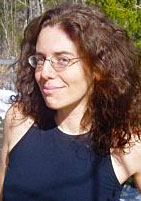When biologist Caren Cooper carries out her avian studies, she’s aided by thousands of assistants, none of whom are paid for their work. That’s because Cooper, a research associate at the Cornell Lab of Ornithology, relies on the help of so-called citizen scientists, volunteers from across the country who contribute data
 to her research projects. These lay people provide information that enables her and other scientists to study bird life in ways that would otherwise be impossible. But, as Cooper notes in an interview with Yale Environment 360, the uses of citizen science go well beyond bird research. Bushmen in the Kalahari are using apps to document wildlife and natural resources that need to be protected. Environmental activists also are employing open-source technology to measure and monitor pollution, including the deployment of kites and balloons to document such events as the Deepwater Horizon oil spill. “A lot of the ways for us to move forward in certain fields require massive collaboration,” says Cooper. “And so we’re building all the infrastructure for these collaborations, all of the web tools — whatever we need to make that happen.”
to her research projects. These lay people provide information that enables her and other scientists to study bird life in ways that would otherwise be impossible. But, as Cooper notes in an interview with Yale Environment 360, the uses of citizen science go well beyond bird research. Bushmen in the Kalahari are using apps to document wildlife and natural resources that need to be protected. Environmental activists also are employing open-source technology to measure and monitor pollution, including the deployment of kites and balloons to document such events as the Deepwater Horizon oil spill. “A lot of the ways for us to move forward in certain fields require massive collaboration,” says Cooper. “And so we’re building all the infrastructure for these collaborations, all of the web tools — whatever we need to make that happen.”
Read the interview.

Caren Cooper
Read the interview.